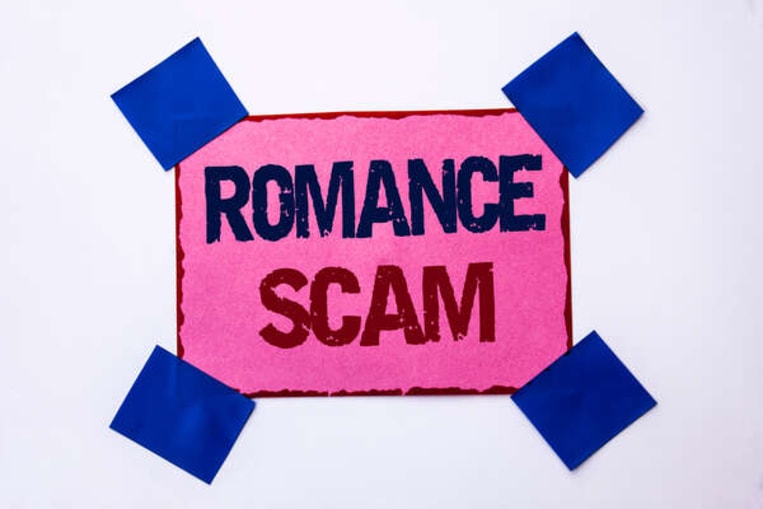
BBB Tip: Romance scams

Getty Images
Check out our romance scam resource page at BBB.org/romance.
Many have turned to online dating and social media over the past three years to find love and meet new people. Unfortunately, these platforms have not only made it easier than ever to meet new people and find dates but have also made it easier to be scammed as well. Con artists create compelling backstories and full-fledged identities, then trick you into falling for someone who doesn't exist. This form of deception is known as "catfishing." Better Business Bureau (BBB) has witnessed a growth in romance scams in recent years.
In 2021, BBB's across North America received 276 reports on romance scams, a 13% increase from 2020. In 2022, the number of reported romance scam cases more than doubled in the first two months of the year when compared to the same period last year. Victims were befriended and tricked into relationships with fraudsters whose sole aim was to get money and/ or credit card information from them.
With Valentine's Day around the corner and the pandemic still a part of our lives, BBB encourages those looking for love to be wary of fraudsters. Don't let your quest for love blind you to the realities of romance scams.
Online dating sites are popular, as many singles use technology to find a match. But behind many dating profiles lurk scammers who are ready to dupe users into believing they have found love.
Online dating and social media have made it easier than ever to meet new people and find dates. Unfortunately, it has made scammers’ work simpler, too. Con artists create compelling backstories and full-fledged identities, then trick you into falling for someone who doesn’t exist. This form of deception is known as “catfishing.” Sometimes a catfisher is simply a lonely person hiding behind a fake persona. But often, it is the first step in a phishing scheme to steal personal information or a romance scam to trick you out of money. In some cases, victims have been tricked into moving illegal money from other scams (“money mule”), which is potentially a crime.
Read more in “Online Romance Scams: A BBB Study on How Scammers Use Impersonation, Blackmail, and Trickery to Steal From Unsuspecting Daters.”
How the scam works:
Most romance scams start with fake profiles on online dating sites created by stealing photos and text from real accounts or elsewhere. Scammers often claim to be in the military or working overseas to explain why they can’t meet you in person. Over a short period of time, the scammer builds a fake relationship with you, exchanging photos and romantic messages, even talking on the phone or through a webcam.
Just when the relationship seems to be getting serious, your new sweetheart has a health issue or family emergency or wants to plan a visit. No matter the story, the request is the same: they need money. But after you send money, there’s another request, and then another. Or the scammer stops communicating altogether.
Tips to spot this scam:
Too hot to be true. Scammers offer up good-looking photos and tales of financial success. Be honest with yourself about who would be genuinely interested. If they seem “too perfect,” your alarm bells should ring.
In a hurry to get off the site. Catfishers will try very quickly to get you to move to communicate through email, messenger, or phone.
Moving fast. A catfisher will begin speaking of a future together and tell you they love you quickly. They often say they’ve never felt this way before.
Talk about trust. Catfishers will start manipulating you with talk about trust and its importance. This will often be the first step to asking you for money.
Don’t want to meet. Be wary of someone who always has an excuse to postpone a meeting because they say they are traveling or live overseas or are in the military.
Suspect language. If the person you are communicating with claims to be from your hometown but has poor spelling or grammar, uses overly flowery language or uses phrases that don’t make sense, that’s a red flag.
Hard luck stories. Before moving on to asking you for money, the scammer may hint at financial troubles like heat being cut off or a stolen car, or a sick relative, or they may share a sad story from their past (death of parents or spouse, etc.).
Protect yourself from this scam:
- Never send money or personal information that can be used for identity theft to someone you’ve never met in person. Never give someone your credit card information to book a ticket to visit you. Cut off contact if someone starts asking you for information like credit card, bank, or government ID numbers.
- Ask specific questions about details given in a profile. A scammer may stumble over remembering details or making a story fit.
- Do your research. Many scammers steal photos from the web to use in their profiles. You can do a reverse image lookup using a website like tineye.com or images.google.com to see if the photos on a profile are stolen from somewhere else. You can also search online for a profile name, email, or phone number to see what adds up and what doesn’t.
To report a scam, go to BBB Scam Tracker.
To learn how to protect yourself, go to “10 Steps to Avoid Scams”.
BBB Serving Southern Alberta and East Kootenay, BBB Serving Metro Atlanta, Athens & NE Georgia, and BBB of Central Oklahoma contributed to this tip.
Still Need Assistance?
Contact Your Local BBB
Your local Better Business Bureau can assist you with finding businesses you can trust. Start With Trust®.
Additional Resources
Let BBB help you resolve problems with a business
Research and report on scams and fraud using BBB Scam Tracker
Learn more about the value of BBB Accreditation